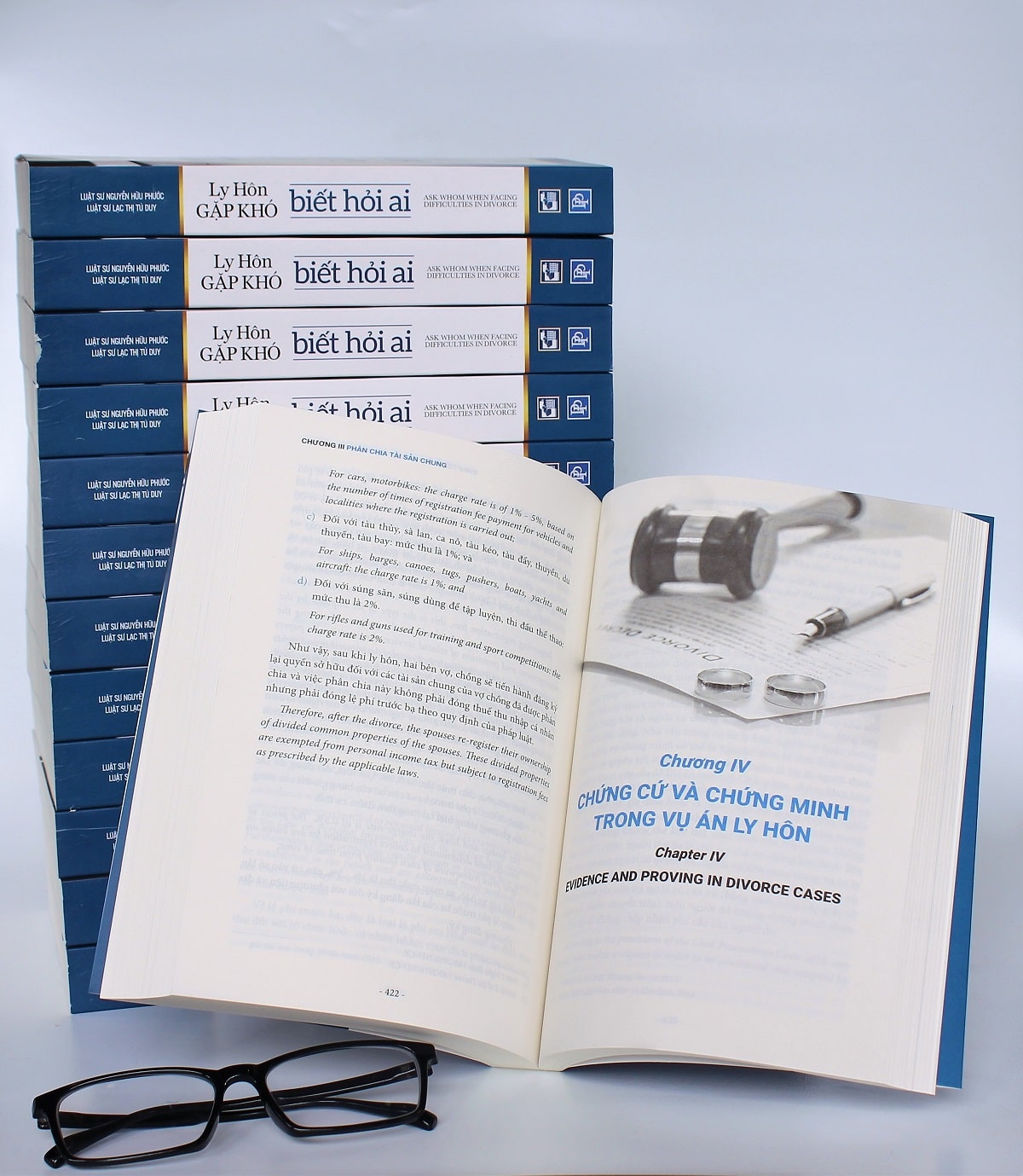- In a divorce case, is the husband or wife entitled to copy all relevant documents and evidence in the case file kept by the Judge before bringing the case to trial?
According to the current law, the right to copy documents and evidence files, provided by the other spouse or collected by the Court, in divorce cases is a basic right of a spouse[3]. This provision helps create fairness between the two spouses in a divorce case, as it allows them both to access each other’s evidence while increasing the role of litigation at the hearing instead of just depending on the files. Additionally, this right also helps the spouses properly identify their requests and to make appropriate decisions for the resolution of the case. Thus, in the divorce case, the spouse is one of the litigants (either plaintiff or defendant) and has the right to make copies of documents and evidence in the case files. The Judge in charge of that case is obliged to assist the requesting spouse to exercise the right as mentioned above. However, the entitlement of litigants to make copies of evidence is not found in all cases. In some cases, any documents and evidence related to State secrets, national traditions and customs, professional secrets, business secrets, personal secrets, family secrets and as required by the involved spouses, the Court has the right to refuse the spouses from photocopying them[4].
2. If it is possible, is the husband or the wife required to make a written request to the Judge who is handling the case?
In order to exercise the right to copy documents and evidence in a divorce case, the spouse must make a request to the Court. If he or she is illiterate, the Court must make a written record clearly stating that request, and re-read the record for that person so he or she can sign or fingerprint it for his or her confirmation of content[5].
This petition is the ground for the Court to allow the spouses to copy documents and evidence and is the basis for considering the responsibility in case of a breach. When making an application for photocopying documents, and evidence, the requesting spouse must clearly state which documents and evidence in the case file that he or she wishes to copy. At this time, the Judge or the Court Clerk will provide documents and evidence at the request of the requesting spouse. And if a breach occurs, the application will be a clear basis to determine the responsibility of the litigant. For example, if the requesting spouse, during the copying process, falsifies the case file by repairing or destroying it, with such application, the Court has clear grounds that the requesting spouse has accessed the case file. Conversely, if the refusal of the Court regarding the photocopying of the evidence is ungrounded, this application for copying such documents and evidence will also serve as a basis for the requesting spouse to exercise his or her right to complain.
[3] Article 70.8 of the Civil Proceedings Code 2015.
[4] Article 109.2 of the Civil Proceedings Code 2015.
[5] Article 17.1 of the Resolution 03/2012/NQ-HDTP.
If you would like more information on how we can assist you with divorce issues, please contact us at: +84 (28) 36223522 or email us at info@phuoc-partner.com

